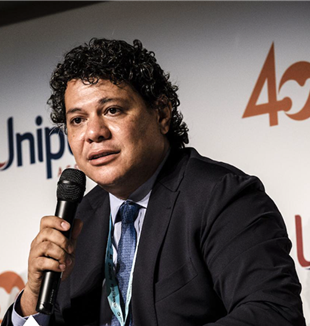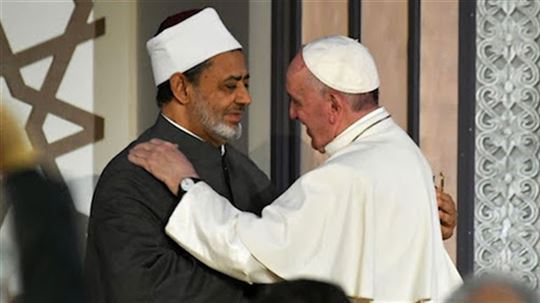
The penitent pilgrim who looks at the stars
The Pope does not just engage in dialogue or diplomacy: "He fills the void with his presence." Wael Farouq looks back at Francis’ visit to Iraq, and he recounts how the the Grand Imam of al-Azhar wished to pray for Francis...The Pope's visit was the first occasion when all components of Iraqi society came together: Shiites, Sunnis, Kurds, Christians... They all gathered around the figure of Francis. But why did he choose to visit Iraq, Jordan, Palestine, Morocco, Egypt, the United Arab Emirates? This is the very question the Iraqis asked themselves: "Why is he coming to us in the midst of the pandemic and terrorist attacks? Why us?" One Iraqi tried to give an answer: "Because the Pope is the prophet of the wounded. And who is more wounded than the Iraqis, a forgotten people who have been besieged for years?"
In his letter ahead of the trip, Francis reiterated that he was going to Iraq as "a penitent pilgrim," looking at the same stars as Abraham: but a pilgrim does not travel carrying hope and blessings for others, but rather to ask for them. Perhaps, then, he chose to visit Iraq and the other Arab countries to remind us that the Catholic Church is not European and the Christian faith is not Western. The roots of Christianity are not hanging from the sky, but are well planted in a land that has a long history and a harsh present - full of pain, suffering and testimony - which has maintained, and continues to keep alive, this faith for two thousand years.
The Pope's visit to Iraq was an Easter for Iraqi Christian martyrs, the resurrection of their witness, snatched from oblivion. With his visit, he wrote a new history for them, no longer moved by terror of the murderer, but by the hope embodied in the testimony of the victims who, in a time of doubt and nihilism, chose to leave everything behind in the name of their faith, in the name of what gives meaning to their lives and transforms their death into glory.
The Pope does not engage in diplomacy or dialogue, but in a much simpler and fundamental thing: he fills the void in which hatred and prejudice can grow. He has filled this void in public and in the hearts of others, in the hearts of Arabs and Muslims. He does not engage in abstract dialogue; he brings it within the daily lives of ordinary people. He does this simply through his presence: he does not dialogue, he is present. He put an end to the dialogue between stereotypes, which is even more dangerous than the clash between stereotypes.
Read also - Iraq: "Us refugees and the glory of the Lord"
It is no wonder, therefore, that the Pope wrote in the encyclical Fratelli Tutti that it is inspired by his meeting with the Grand Imam of al-Azhar. And no wonder that the Grand Imam, one day, asked a group of Muslims gathered in his office, including myself, to stop in silence and pray together for Francis.
The Pope, by his presence, transformed the dialogue from an illusory communion in faith to a real communion in life.